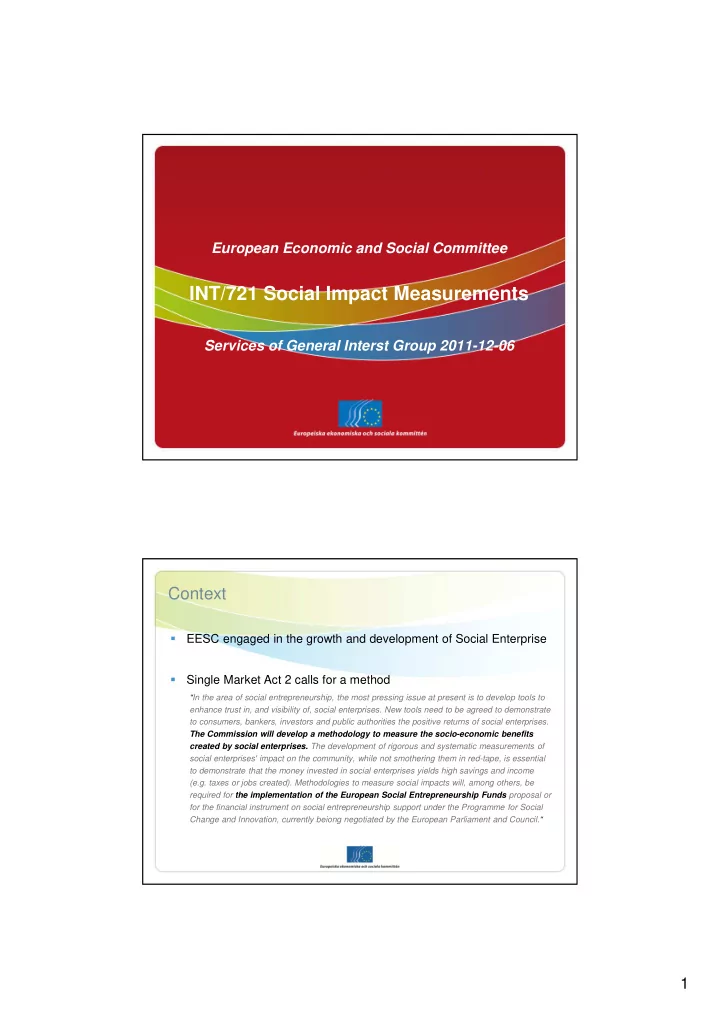

European Economic and Social Committee INT/721 Social Impact Measurements Services of General Interst Group 2011-12-06 Context � EESC engaged in the growth and development of Social Enterprise � Single Market Act 2 calls for a method “In the area of social entrepreneurship, the most pressing issue at present is to develop tools to enhance trust in, and visibility of, social enterprises. New tools need to be agreed to demonstrate to consumers, bankers, investors and public authorities the positive returns of social enterprises. The Commission will develop a methodology to measure the socio-economic benefits created by social enterprises. The development of rigorous and systematic measurements of social enterprises' impact on the community, while not smothering them in red-tape, is essential to demonstrate that the money invested in social enterprises yields high savings and income (e.g. taxes or jobs created). Methodologies to measure social impacts will, among others, be required for the implementation of the European Social Entrepreneurship Funds proposal or for the financial instrument on social entrepreneurship support under the Programme for Social Change and Innovation, currently beiong negotiated by the European Parliament and Council.“ 1
Context � GEGES Sub-Group Tasked � Mandate : “The GECES sub-group was set up in October 2012 to agree upon a European methodology which could be applied across the European social economy” � Progress: � Several reports to GECES � Report due November 28 EESC Opinion � Own Initiative opinion � to provide EESC expertise to Commission work � Primarily from Social Enterprise perspective � Adopted unanimously at INT-section November 13 � Plenary adoption December 10 � EESC new input to Strasbourg event � WS 11 � Content: describing social impact in society and for social enterprise, actors, methods and recommendations 2
Content INT/721 - recommendations Welcome the debate on social impact measurements � both for � social enterprises and the social dimension of Europe more widely EESC description as: social outcomes and impact created by � specific activities (and models) of the social enterprise – not the enterprise itself Tread carefully, do not rush � may counteract purpose of SBI � � Sector still underdeveloped, low awareness in many MS � Risk of incorrect or over-application in MS � may stifle social innovation, development and growth of sector Content INT/721 – recommendations cont’d Recognise impact of social enterprises is different � � Core purpose of enterprise and an integral part � Many methods exist � are bottom-up and both qualitative and quantitative � Input � Output � Outcome � Impact Pilot methods for EuSEF and EaSI � monitor and revise � � Method must be supportive of the social enterprise and be proportional � Stakeholder approach with social enterprise at heart � Awareness raising and training programmes for MS EESC to continue to discuss and monitor � 3
Thank You! ariane.rodert@socialforum.se ariane.rodert@famna.org 4
Recommend
More recommend